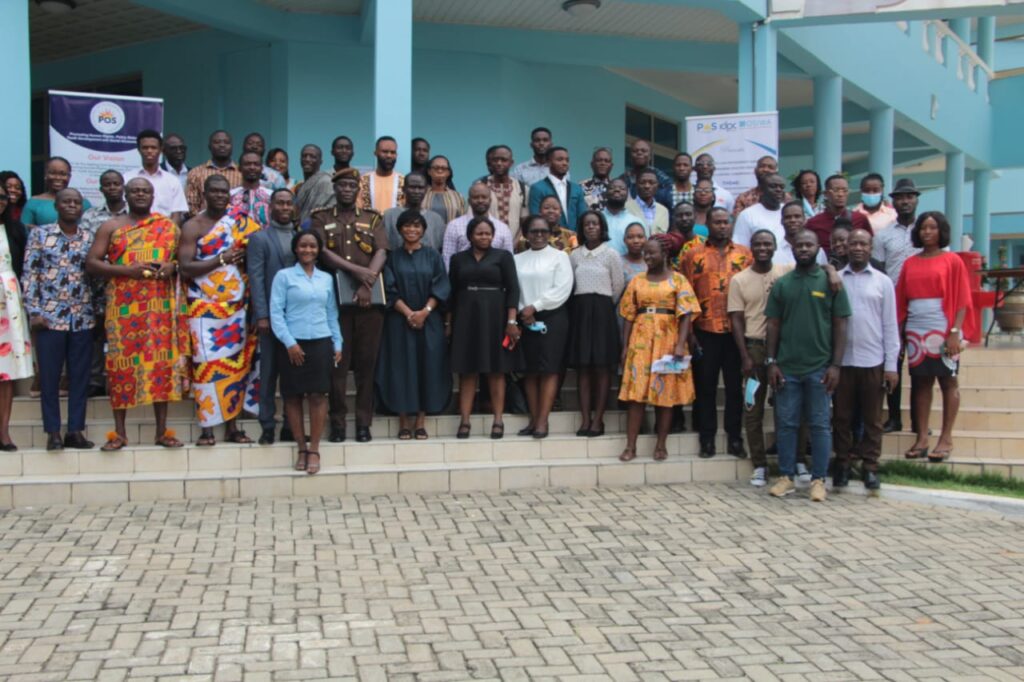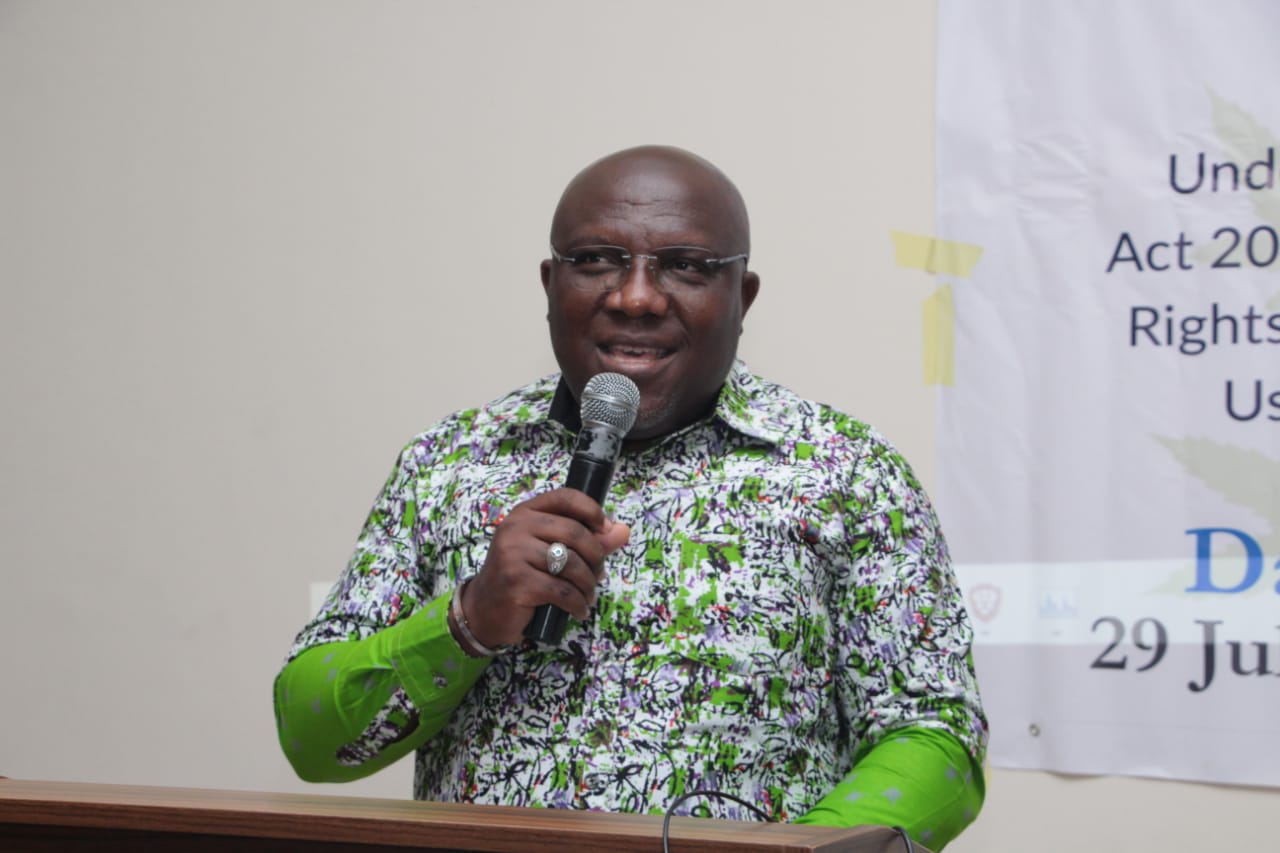The Eastern Regional Minister Seth Kwame Acheampong who is Ghana’s representative on UN Commission on Narcotics Drug (UNODC), has expressed his disagreement with the Supreme Court ruling declaring Section 43 of the Narcotic Control Commission Act, 2022 (Act 1019) as unconstitutional.
Section 43 of the Narcotic Control Commission Act, 2022 (Act 1019) stipulates that “the Minister on the recommendation of the Commission, may grant a license for the cultivation of cannabis popularly referred to as “wee” in Ghana, which is not more than 0.3 % THC content on a dry weight basis for industrial purposes for obtaining fiber or seed for medicinal purposes.”
However, in a 4-3 majority decision Wednesday, July 28, 2022, a seven-member panel of the apex court held this section violates Article 106 of the 1992 Constitution, which details the processes a bill must go through before it is passed into law by Parliament, and was therefore null and void.
Speaking at a sensitization workshop organized by POS Foundation with funding from OSIWA for the media in the Eastern region on ensuring effective implementation of the Narcotics Control Commission Act 2020(Act 1019), the Eastern Regional Seth Kwame Acheampong who is Ghana’s representative on UN Commission on Narcotics Drug, and former chairman of Defense and Interior committee in Parliament under whose watch the bill was worked on said even though he accepts and respects the decision of the supreme court he, however, disagrees with the court.
He said the Act was carefully enacted, and it is progressive in dealing with the narcotics situation in the country hence the ruling ought to be reviewed.
“I accept the Supreme Court decision but as a human being I have a dynamic mind and I can always change my mind, and I think that there ought to be a review in my estimation as to the exact decision.
I haven’t had the opportunity to read the full judgment but a sample of it talks about procedural concerns that talks about how our 1992 constitution has told us to go through the process of law-making and so these are matters of procedural and who best discharges such decision apart from the supreme court. They are the arbiters. They are the only ones in whose bosom the laws reside, they will tell us this is what the laws say”. Said Seth Kwame Acheampong
“We enact the laws but the laws are interpreted by the judiciary. So when the Supreme court has spoken they have spoken but as I said, as a dynamic person and academic human being I am not static, I have a mind of change. So I may accept the principle of the decision today but when I go and sleep and have a free mind I may express myself and I think we need to all have that engagement, freedom of expression is enshrined under our constitution so I will not bow to speak my mind”.
The Former Executive Secretary of now Narcotics Control Commission (NCC) Yaw Akrasi Sarpong said civil society organizations must fight for the Supreme Court decision to be reversed to protect the constitutionalism spirit of the Act.

He said the ruling “deepens constitutionalism but we will fight it. We’ll go for a review and we will win. It is part of the struggle but we have to see the ruling first. it is absolutely clear that it’s about the procedure, not contempt but we as civil society will fight it. I am happy that it was a 4:3 decision .so it tells you that we have gone a long way, there was sometimes when it was seven/ zero but now we have a four/three decision so now I know that we are on a forward match so let’s trust that the next time round it will be seven zero in our favor”.
The Executive Director of Perfection of Sentiments POS Foundation Jonathan Osei Owusu appealed to President Akufo Addo to add nonviolent drug convicts to the annual amnesty granted to prisoners.
“We want to appeal to the President once again that in exercising his discretion and prerogative under article 64, we know that includes narcotics. Nonviolent drug users are on the list of those we are appealing to be added by the President to grant amnesty”
Ghana’s new drug law seeks to treat drug use and dependency as a public health issue rather than focusing on law enforcement, incarceration, punishment, and repression. The new law has converted prison term for drug possession for personal use into a fine of between 200 to 500 penalty units equivalent to GHc2,400.00 to GHc6000.00 respectively.
Source: Mybrytnewsroom.com/Obed Ansah




















































